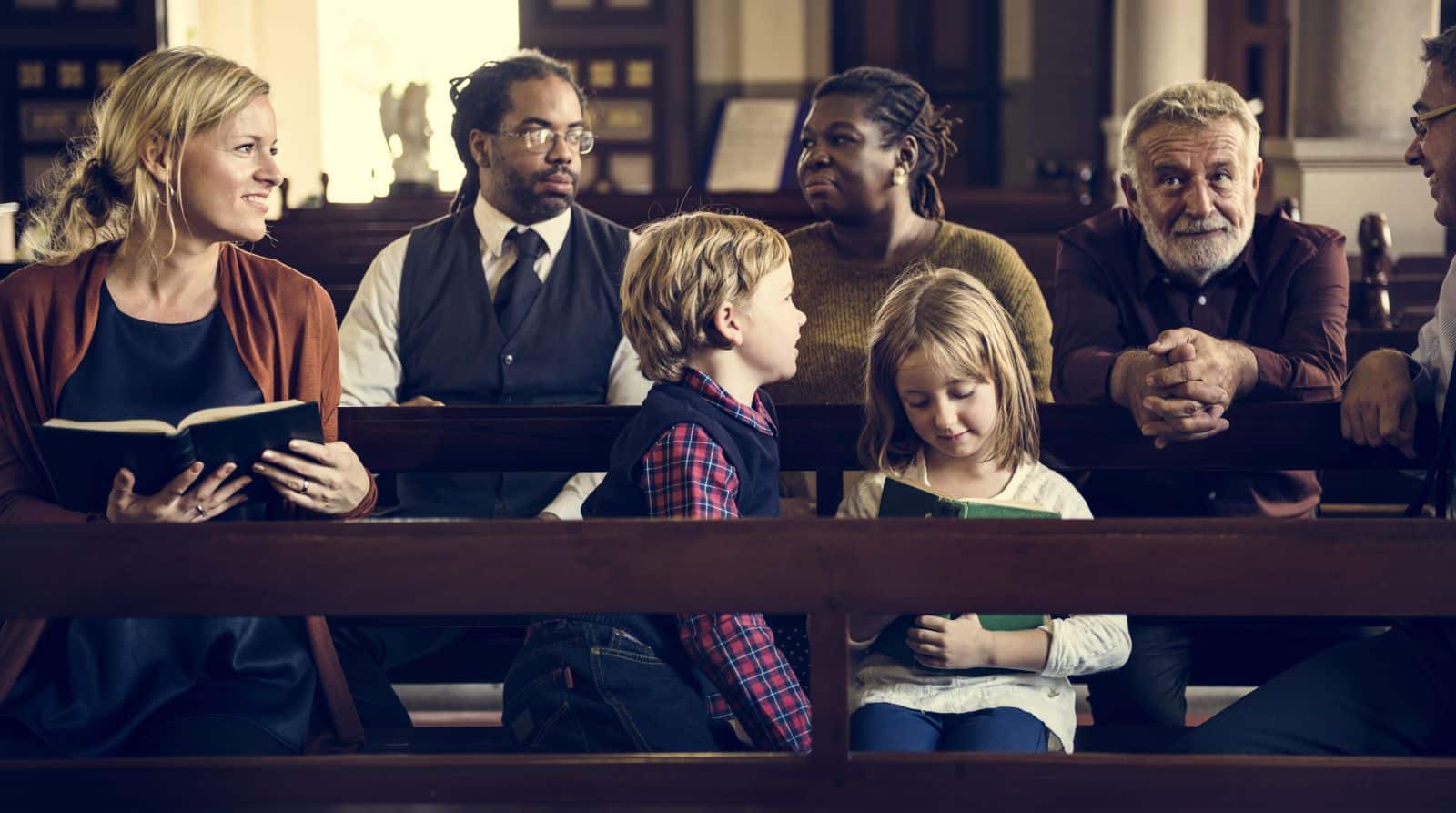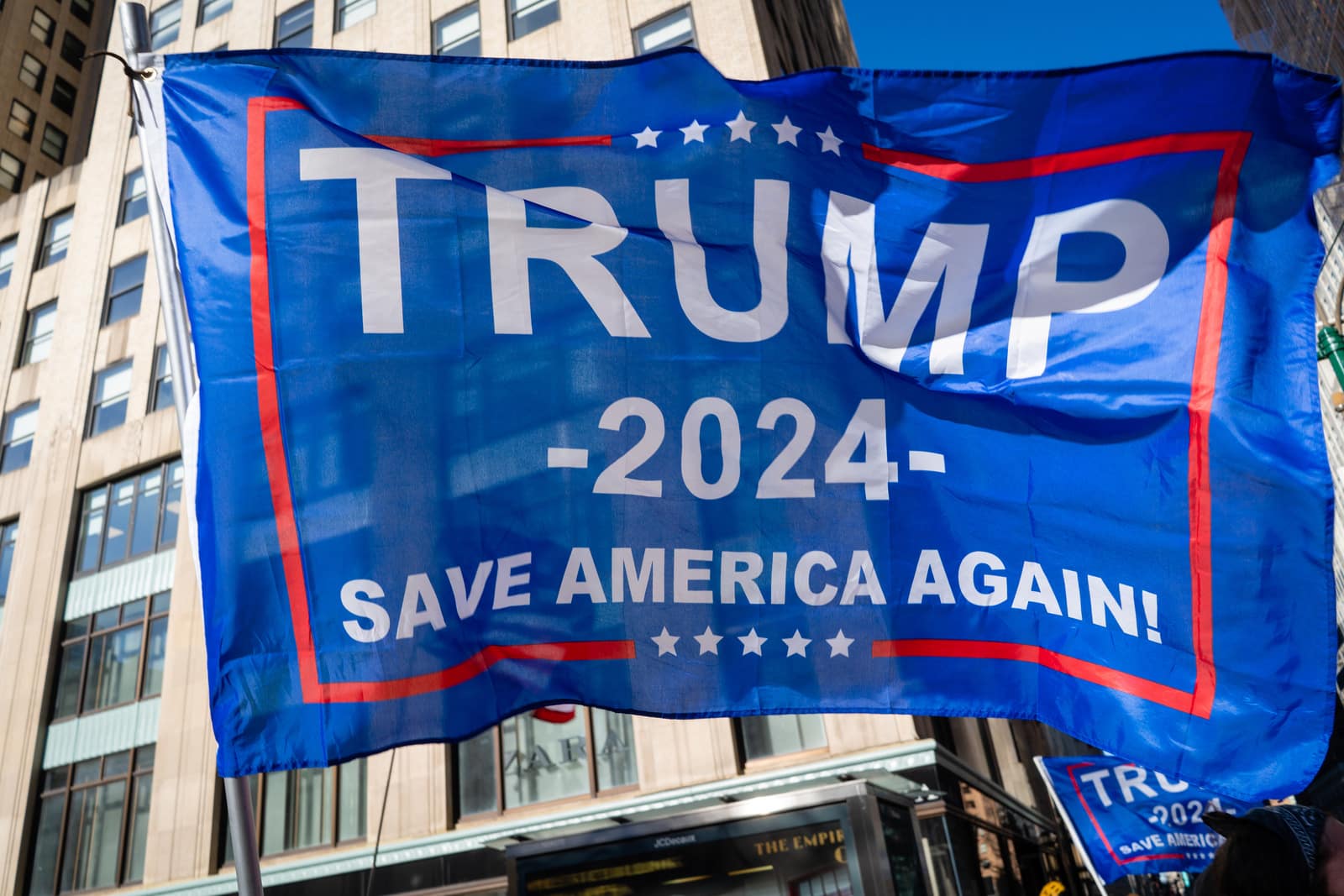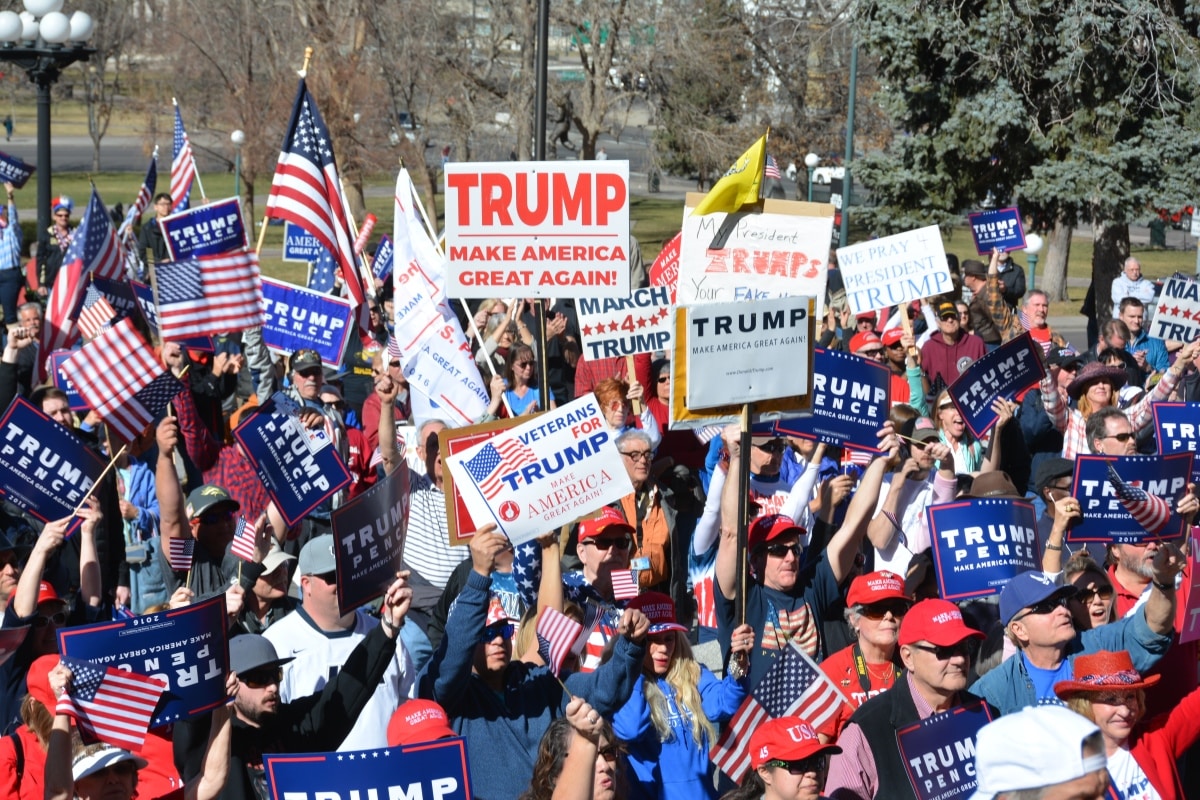A recent survey has shown a disturbing and potentially violent trend amongst white evangelicals. Here’s the full story.
Concerning Trends

A recent survey conducted by the Public Religion Research Institute (PRRI) has revealed concerning trends regarding the willingness to endorse political violence among Americans.
The survey found that white evangelical Americans were more likely to support political violence than their non-Christian counterparts.
Failed Insurrection

The study has increased concern about political violence following the events of January 6, 2021, when supporters of former President Donald Trump violently breached the U.S. Capitol in an unsuccessful attempt to overturn the 2020 presidential election results.
Steadfast Support

While white evangelicals cannot be collectively held responsible for the events of January 6, they are known for being among Trump’s most steadfast supporters.
“Disturbing” Findings

The PRRI survey, published recently, contains what it terms as “disturbing” findings.
Almost one-fourth of all Americans, or 23 percent, expressed agreement with the statement: “Because things have gotten so far off track, true American patriots may have to resort to violence in order to save our country.”
This represents an increase from 15 percent in 2021.
Support for Violence

Of particular concern is that among white evangelical Protestants, 31 percent supported the statement.
This figure is significantly higher than the average level of 23 percent support for political violence among non-Christians and religiously unaffiliated Americans.
Lower Rates

Other Christian groups supported political violence at lower rates than evangelicals, with some even less supportive than non-Christians.
Specifically, the statement found support from 25 percent of white non-evangelical Protestants and 24 percent of Black Protestants.
Only 21 percent of Hispanic Catholics and 20 percent of white Catholics were in favor of potential violence.
Church Makes No Difference

The survey did not indicate any differences in results based on church attendance among white Christians, although it did not specify the impact of attendance on the results from the other races surveyed.
Everyone’s More Mad

While support for the statement favoring political violence increased across all groups, the most substantial increase was observed among non-Christian religious individuals, rising from 9 percent in 2021 to 23 percent in 2023.
In contrast, white evangelicals saw a somewhat less dramatic increase, going from 24 to 31 percent.
All Comes Back to Trump

Notably, the survey suggests that religion may not be the primary factor influencing willingness to support political violence.
Instead, political affiliation, particularly support for Trump and his unfounded claims of a “stolen” 2020 election, played a more significant role.
Violent Republicans

Among major political groups, Republicans were the most likely to support the use of violence to “save the country,” with 33 percent in agreement.
In contrast, only 13 percent of Democrats agreed, while independents fell in between at 22 percent.
Trump Twice

Interestingly, Republicans who were supportive of Trump were more than twice as likely to agree with the statement compared to those who did not support Trump, with figures of 41 percent and 16 percent, respectively.
Suspension of Belief

The survey findings revealed that those who believed in the false claim of a stolen 2020 election were most likely to support the idea of political violence.
Nearly half, or 46 percent, of those who supported this falsehood expressed a willingness to endorse violence, while only 13 percent of Americans who did not believe the election was stolen agreed with the statement.
1950’s Values

Another factor influencing support for potential violence was the desire for a return to the values of the 1950s.
Among those who longed for a return to those values, 30 percent expressed support for political violence.
Civil Rights Act

In contrast, among those who did not agree that the country had “changed for the worse” since the 1950s, prior to the Civil Rights Act, only 14 percent supported the statement.
“Churches Are Losing People”

The survey, which was conducted by PRRI through online interviews with 2,525 U.S. adults nationwide between August 25 and August 30, with a margin of error of 2.19 percent, has led to a heated conversation online.
One user posted “Gosh, how loving and Christian of them. No wonder their churches are losing people”
“Religion of Peace?”

Another user commented, “Religion has always been associated with violence and countless people have been murdered in the name of religion over time.”
Another said more simply “Religion of peace?”
The post Survey Highlights Differing Views on Political Violence Among White Evangelicals and Non-Christians first appeared on Edge Media.
Featured Image Credit: Shutterstock / Jim Lambert.
Grant Gallacher is a seasoned writer with expertise in politics and impactful daily news. His work, deeply rooted in addressing issues that resonate with a wide audience, showcases an unwavering commitment to bringing forth the stories that matter. He is also known for satirical writing and stand up comedy.

